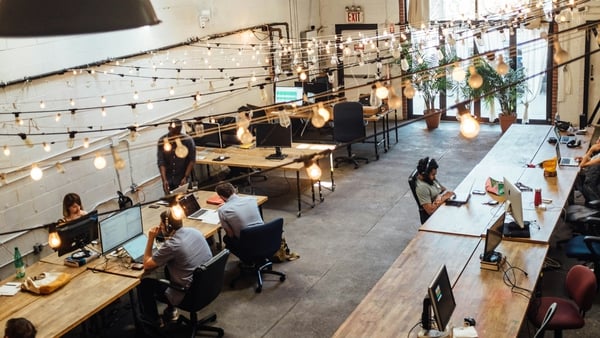Analysis: there are many factors that might be contributing to this shift in prizing work over other aspects of one's life
Several years ago, one of my PhD students joined a prestigious consulting firm after completing her degree. Her description of a typical workday went something like this: "I get to the office at 8am, work for 12 hours, cry and then fall asleep on the floor of my office". In many industries and professions this sort of high-intensity workplace was the norm, especially for ambitious employees who hoped to rise in the organisation.
In one of his rare bursts of public service, Elon Musk has burst the balloon of the high-intensity workplace. After acquiring Twitter, he fired (or tried to) a large part of the workforce. The new boss then sent the remaining workers an ultimatum, either commit to a "hardcore" Twitter or take an immediate severance. He told them that "this will mean working long hours at high intensity," and that "only exceptional performance will constitute a passing grade."
What followed was a mass exodus, forcing Twitter to try and rehire many of the employees who opted for the severance. It is no longer clear whether Twitter will be able to operate effectively unless it can convince many of the employees it has recently lost to return.
We need your consent to load this rte-player contentWe use rte-player to manage extra content that can set cookies on your device and collect data about your activity. Please review their details and accept them to load the content.Manage Preferences
From RTÉ Radio 1's Morning Ireland, Elaine Burke from Silicon Republic on the exodus of workers from Twitter after Elon Musk's ultimatum
Until recently, it would have been unthinkable to see many employees voluntarily leave a prestigious and highly visible company like Twitter. But things have now reached the point where the employees who were willing to sign on for long hours and high intensity are the ones who should go, and that the day of the high-intensity workplace may be over.
There are many factors that might be contributing to this shift in prizing work over other aspects of one's life. First, workers are increasingly committed to a more sustainable balance between their work and nonwork lives. Millennials are especially likely to expect a better balance between work and the rest of their lives, favoring flexibility in the workplace over long hours and little separation between work and the rest of their lives. This preference is not limited to younger workers; there is evidence that workers of all ages are increasingly interested in a better balance between work and the rest of their lives.
Changes in the labour market have also made it more difficult to attract workers to high-intensity workplaces. Since the height of the pandemic, many organisations are struggling to convince employees to come back to the office at all, much less to chain themselves to their desks and sleep on the floor, à la Musk. Workplaces are attempting to make the office more homely and comfortable and are offering financial incentives and catering to a wider range of needs (better meals, more comfortable areas to take a break from work). They cannot afford to turn off employees by imposing unrealistic demands.
We need your consent to load this rte-player contentWe use rte-player to manage extra content that can set cookies on your device and collect data about your activity. Please review their details and accept them to load the content.Manage Preferences
From RTÉ Brainstorm, why workers don't like their HR department
Probably the largest single factor in the potential demise of the high-intensity workplace is the fact that so many workers have spent a significant amount of time working remotely. Remote workers are more satisfied and productive and there is little appetite for returning to the office, much less for returning to an office that is a living hell.[9]
In the First World War, a popular song asked "How ya going to keep them down on the farm after they've seen Paree?". We might well ask how any organisation is going to convince good employees who have been productive and happy working from home to come back to a high-intensity office. The example of Twitter suggests that ultimatums from on high are not the answer.
I have spent the last 40 years studying behavior in organisations, and I think the response of the Twitter workforce to the demands of their new boss might represent one of the most positive signs of a change in the workplace I have ever seen. Perhaps we are finally seeing a fundamental re-appraisal of the meaning and value of work in our lives. There is an increasing recognition that slaving away in the office, to the extent that it harms your physical and mental health and your relationships with family, friends and the community is a bad deal, especially when most of the rewards of your work go to grossly overpaid executives.
We need your consent to load this rte-player contentWe use rte-player to manage extra content that can set cookies on your device and collect data about your activity. Please review their details and accept them to load the content.Manage Preferences
From RTÉ Radio 1's Today With Claire Byrne, psychologist Sinead Brady on how attitudes are changing to crying in the workplace
Work is an important part of adult life and does more than simply pay the bills. For many people, work is an important part of their identity, and healthy work can bring additional value and meaning to life. However, there is an increasing recognition that devotion to work above all else is unhealthy and destructive. We may be reaching the point where we recognise that employers and employees who want that sort of workplace are doing themselves harm.
Musk has famously claimed that "nobody ever changed the world on 40 hours a week", but remote workers seem to be accomplishing amazing things without ever coming in to the office. It is possible we are seeing the end of the 9-to-5 working day and the five day working week. It seems even more likely that the 60 to 80-hour week will be increasingly seen as bizarre and unhealthy, not as a sign of a productive employee.
Towards the end of his career, my father was interviewed for a job where the employer wanted him to bring work home to do at night. His response summed up much of the current debate over high-intensity workplaces: "if I cannot do this job in 40 hours, you should not hire me". He got the job.
The views expressed here are those of the author and do not represent or reflect the views of RTÉ







